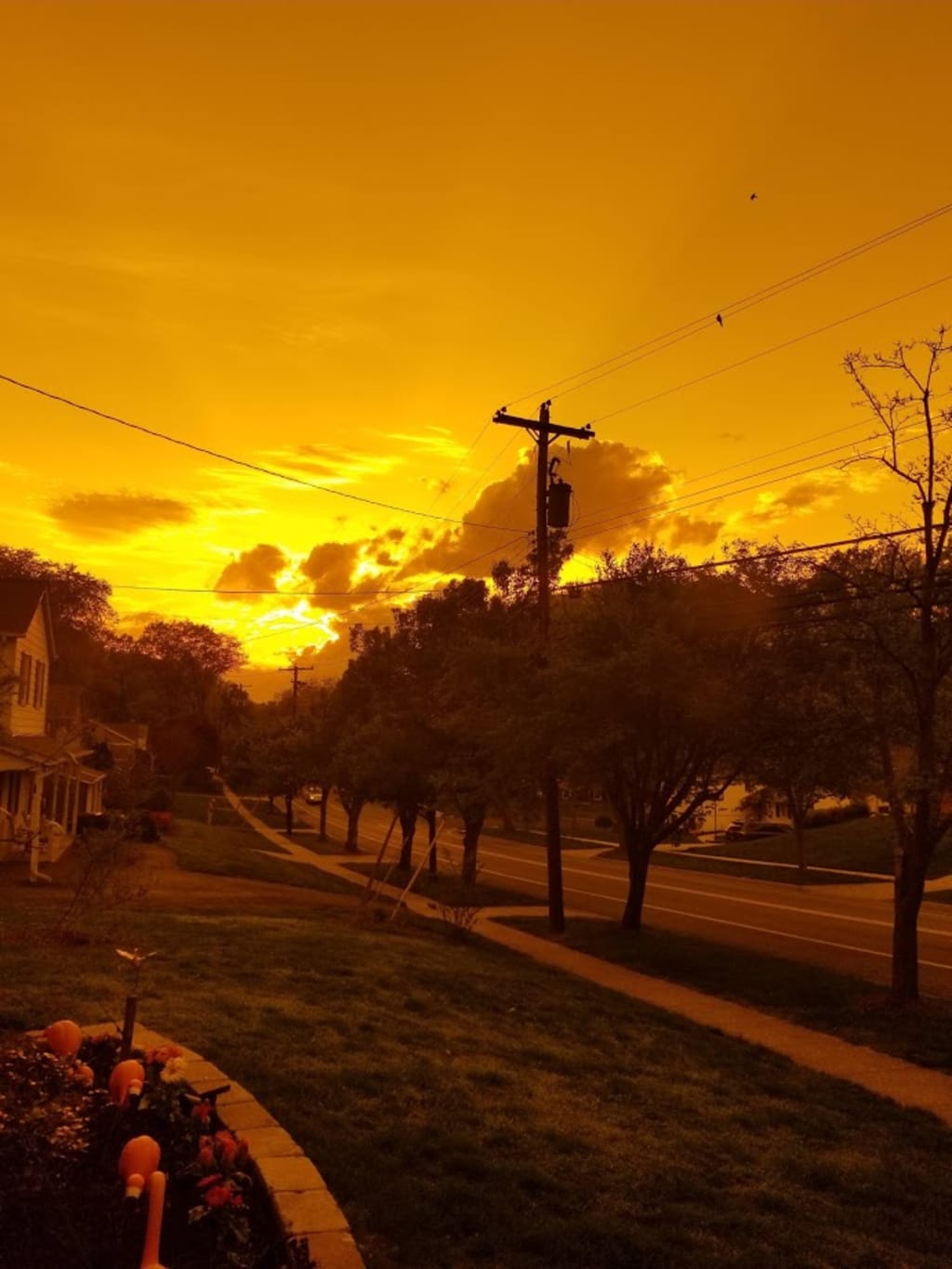The Mindful Divorce - Introduction
Life gets better than you imagined

You are most likely reading this because you are suffering and you are in a bad place.
You’re likely wondering what the hell is happening to you? Divorce?!! It can’t be. You might feel trapped. It probably feels like your whole world has dropped into a weird horrible alternate reality. What about X? How can I Y? Surely s/he must realize Z!
Possibly, like many divorces, this is happening after a long marriage - a surprising portion (almost a majority) of divorces happen 15, 20 and even 25 years or longer.
Maybe you are not there yet, and are only standing on the abyss but it feels like your cliff is eroding. Maybe even you are just finding that life is not working out for you and divorce is the closest metaphor.
That is why I wanted to write this book - I drove home having to tell the kids that their mom was not coming home that night, that she had decided that our family no longer made sense. I had to explain to them that she was taking some time in a hotel away from everyone.
Some months later, as it became more evident that this was, in fact, true, I sat in a car with some medicines and a bottle of whiskey thinking that, based on some internet searches there, was at least a chance I could end it quietly (and yes, there are some amazingly frank websites with step-by-step instructions on how to end things).
I have cried myself to sleep, avoiding my kids as I nursed more than a shot of whiskey. I looked for non-prescription and eventually some prescribed sleeping pills. I had no words to capture what I was feeling. In short, I was lost and alone. It sucks.
There were some minor pluses, I lost a substantial amount of weight in a very short period as my hunger went away. I invented the Manhattan Slushy. And I actually formed a closer bond with my children but not at the expense of my ex.
Then I railed against the way things were. I devised elaborate plots to restore order and my sense of what should be. In the process, I came up against the limits of what I felt life was. I have likely felt what you might be feeling.
But wait. As Douglas Adams famously said, Don’t Panic.
I mean that. You can get through this and you will. You will find that your most meaningful years are in front of you. Even if you don’t end up in divorce what you do now will make your life worth living in a new and deeply meaningful way.
I wanted to share a series of possible tools, words, and concepts to help you make it through this. But wait, I know this sounds like the dreaded cliche toolbox that your modern work environment keeps referring to. But please trust me, it is so much more than that.
What you are going through may actually give you a new and even more rewarding life.
Look, I am not promising you The One True or Right Way of viewing the world - there is no, as far as I know, magical incantation that will suddenly reveal all. But as I wandered in despair, I started seeing the same messages and insights in writer after writer, podcast after podcast. Indeed, once you go down the path I want to describe, you start to see that there seem to be some basic concepts that appear again and again.
While the thoughts or ideas might seem new or unusual at first, as you try them on on for size, you might start to see them as something that fits you. The American philosopher Emerson once wrote: “In every work of genius we recognize our own rejected thoughts; they come back to us with a certain alienated majesty”. So, yes, I really do think that once you read and reflect on the thoughts in this book, you might start to say, yeah, that makes sense to me. Not only does it make sense, but if you need some sort of validation, it has made sense to a lot of people before you and me.
What is going to help you, what I think you need, what we all need, is to develop the capacity for mindfulness. Hang with me for yet another minute.
Yes, like eating more fiber and doing more exercise, you might have heard of mindfulness and mentally placed it somewhere on the yoga and psychotherapy spectrum. But as they say on TV commercials, oh, no, it is so much more.
So, what is mindfulness?
Mindfulness is about being here and now with the way your life actually is. Much of your pain is actually caused by your trying to live a life that no longer exists or which you think is coming. You are attached to what you want or expect to be rather than what is.
By being present in and accepting that which is, you oddly open a new path towards finding your meaning in life. Mindfulness not only respects your suffering but also lets you find contentment, happiness and a joy of being alive.
Mindfulness might sound a bit hokey or mystical or new-agey. This book and others like it will not start you eating granola, going vegan or hanging out at airports passing out literature (unless these are pre-existing traits). But really, even for me, what seems a really foreign concept has become a path to find a truly deep peace, a way of engaging with the world, and a deeper sense of what is possible. Indeed, it has given me real meaning in my life.
Again, that might sound impossible right now. What you are going through sucks, it is horrible, and you probably cannot believe it happened to you. You feel your suffering is unique, that your situation and feelings have not been experienced before. Well, that is probably true, your pain is real and unique. But the deep issue you are facing, your suffering, is not unique.
Again, what you are going through is unique - many stories are incredibly unfair, something that you were powerless to stop, or something that cannot be fixed. Divorce is a unique sub-set of these problems because unlike other tragedies or suffering, lives and limbs were probably not lost - indeed, the other person in your relationship is very much alive but it is clear that whatever you were together is gone.
You may not want to hear this right now, but many other people in the world - at this very moment - are living through their own Hamlet. They are engaged in their own tragedies and may not, unlike our Danish prince, make it quite so obvious. Suffering is a widespread and very human condition.
I met with one of my dearest friends after I realized that divorce was inevitable - and I am today still so grateful for that listening ear and sympathetic questions. She listened to my sense of tragedy, surprise, and hurt with what can only be described as a most genuinely kind and listening heart. As we talked, I perfunctory asked how she had been and she mentioned that one of her sons had recently tried to commit suicide and it had been challenging. It was a humbling reminder that some people can still be kind and supportive as they deal with events that are as, and if not more, significant than yours.
Also, let me go back to the non-hokeyness of it all. I am inherently suspicious of horoscopes (I will find the perfect footnote about the progression of the zodiac, etc), crystals, and homeopathy. But mindfulness is based on a unique fusion of eastern philosophy and western empirical science.
It works and has been proven to work to the same degree that stretching before a race prevents cramps, probably more than chiropractics and at least as much as the idea that a balanced diet will make you feel better. Practicing mindfulness, as one really helpful book promised, will make you at least 10 percent happier. (this is the title of a very good book on the topic).
While not hokey I do feel I should warn you that during the process of learning mindfulness, you will likely be exposed to some meditation bells, you may come to appreciate a robust “Ohm” and “Namaste” at least as much as you appreciate hearing other pleasant sounds BUT you don’t need to give up your beliefs, religion or even your common sense to do so.
Mindfulness allows you to separate your pain and your suffering. That might not sound like an outcome worth trying for but it really is. Suffering is the realization, as the Rolling Stones put it so well, you can’t always get what you want.
Pain is caused by being attached to what you desire more than than living in the world you actually are. Pain is your mind making up a story about why your suffering is happening, why it is your fault, why it is someone else’s fault, why it is inevitable, or logical, why the attachment is so worth it; all the things your mind is really good at thinking about.
Our minds do that - they create narratives to connect together things. You mind can be too lashed up or tied into your suffering and make it seem as if this was the only way it had to be. Disconnecting your suffering from pain is possible and not as contradictory as it might sound.
You have probably heard the Buddha quoted as saying all life is suffering. But what he probably meant is that suffering is caused by attachment to what we want and not what is. You want something so much that it hurts. But living in the present and what actually is, is possible through mindfulness.
Understanding mindfulness is important because it really is the key to this book (as you might have guessed by the title). In the pages that follow, I will give more examples of why this can save your life, describe my own particular path through it, and hopefully offer you a series of different ways for you to get out of the despair you might find yourself in, and ideally, a new way of living.
Another bit more on what mindfulness is.
At its most basic; mindfulness recognizes this about ourselves: our minds produce a stream of thoughts, incessantly and without control. That is what evolution (or whatever first process you are attached to) designed them to do. But there is a you that is outside of, watching, and often entangled in, those thoughts.
Paying attention to you that is not the stream of your thoughts is something so profound that it has sparked everything from religious to philosophical movements. Millions, perhaps tens of millions of people, in history have realized this essential truth - we are both author and observer; we are both connected to something outside of ourselves and yet so deeply tied to our contingent thoughtstream.
A note about jargon - look, like you, I have a strong bullshit sensor. I am not going to refer to anything other than what I believe you can experience for yourself. There is no outside influence - no magical mysticism. But there will be times when we use new words for concepts that are either unique, novel or ‘terms of art’. The word, thoughtstream, that I just used above, is one. When I think there is a helpful aside, please take a look for the text boxes marked “helpful aside” where I try to explain why you might find it useful. Go ahead, take a brief look.
TEXT BOX: Thoughtstream: This is the idea that your thoughts flow almost incessantly through your brain. Others have used different metaphors - thoughts are like clouds floating overhead; ideas are leaves drifting through a river; a series of notes that plays a melody or song that make up your thinking. All of these have the important idea that you can watch your thoughts - that it is possible to step outside of your immediate suffering. Whatever works for you - but this concept is important in what follows.
Not all of the paths I went down might resonate for you. There is no one size fits all. But in the following pages, I am going to explain how I came to find a solution to my unexpected bout with A Seriously Bad Experience. In doing so, I am going to rely on the wisdom of crowds, stand on the shoulders of predecessors, sample different writers’ work, whatever works. You might find some or many of these books or authors to be better at expressing things than me - trust me, they probably are.
But at some point, if you do read enough of them, you may start to get that comforting feeling of recognizing some key concepts again and again, even if it is expressed in different words. Good, that means you’re clever or at least you read a lot. And if you want to leave me now, take a look at the text box: “Helpful Aside”.
[End of the Introduction]
Helpful Aside: There are two main ways of learning about mindfulness; books and podcasts. There are lots but here are a few starter ones:
Books:
10 Percent Happier (a bit on the snarky side but from a real practioner),
John Kabot-Zinn’s books on mindfulness (a bit on the staid, relaxed professorial side),
Tara Brach’s Radical Acceptance (a bit on the upper-middle class hot yoga side but it really really spoke to me)
Podcasts
Jack Kornfield (a bit on the gregarious friendly uncle side);
Pema Chondron (wise and generally very approachable).
Roads not taken: There are several authors that have not clicked with me but might be what you need
About the Creator
Another David
Hey, I know you've got choices for your reading. I'm interested in feedback and reactions. I've a wide range of interests. Starting with my own journey after an unexpected divorce and then a hopeful fun story.






Comments
There are no comments for this story
Be the first to respond and start the conversation.